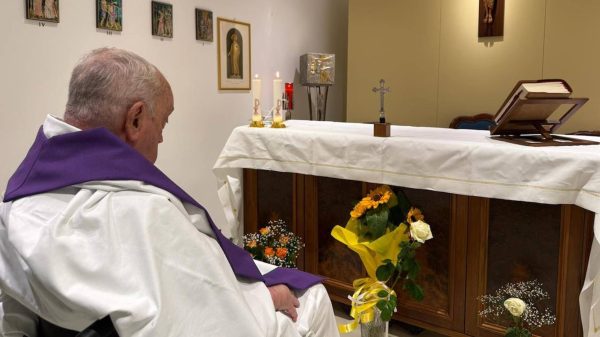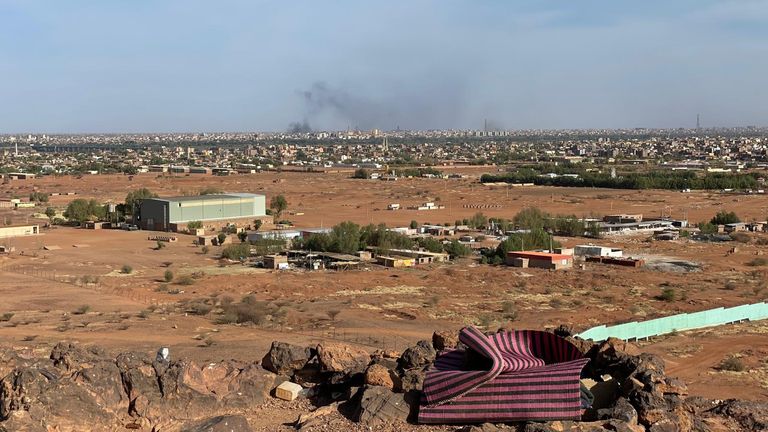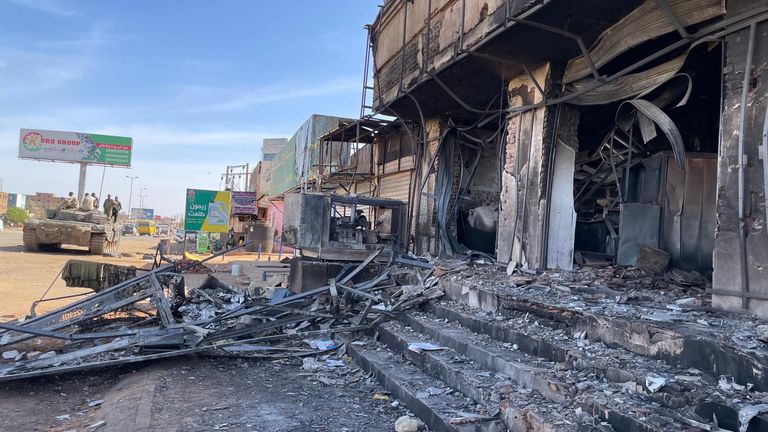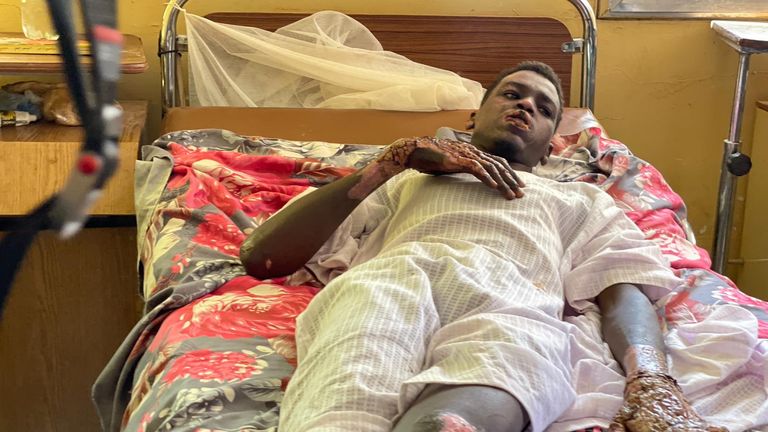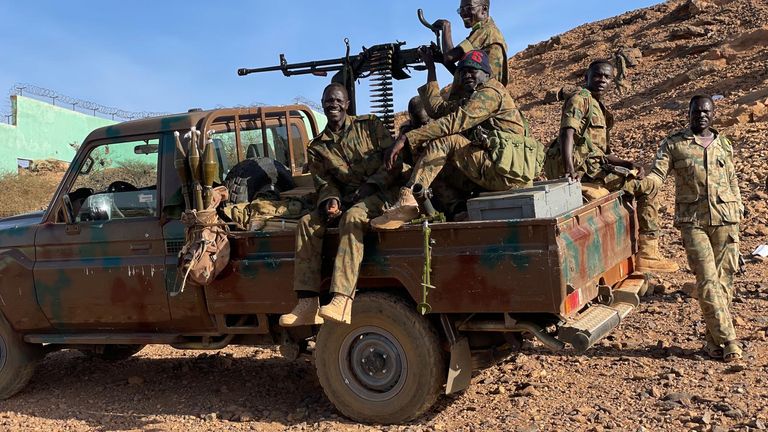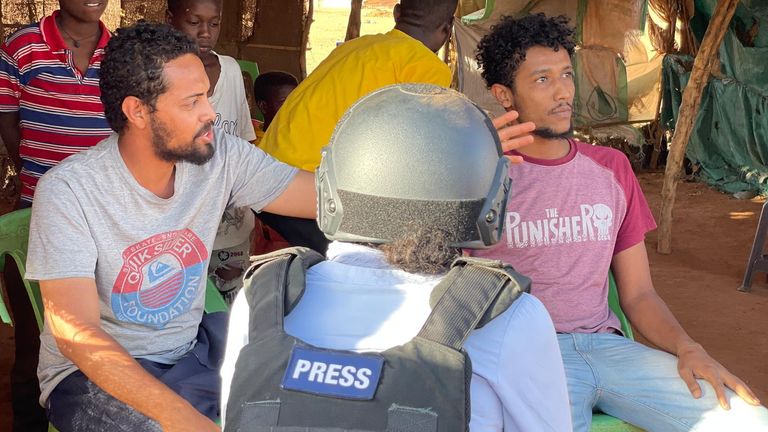Smoky spectres climb up the Khartoum skyline. A pop goes off in the distance and there is a slow rumble of thunder before another pillar builds upwards.
Hundreds of thousands have fled Sudan’s capital to rural areas, other states and other countries but millions remain trapped in a prison of urban warfare.
That is the view from the peak of Mount Serkab in Karari. All around the base are the neighbourhoods of northern Omdurman, the mother city.
An observation point made up of jagged reddish rock looks out on Khartoum as it erupts.
On the mountainside is a stark message written with carefully laid white rock – “In the name of Allah, the most gracious, the most merciful – Rapid Support Forces, Mount Serkab, Karari.”
The base is said to be the largest belonging to the Rapid Support Forces and the most symbolic.
Karari is where the Battle of Omdurman took place in 1898 between the Sudanese resistance army of the Mahdist Islamic state and the British colonial forces of Lord Horatio Herbert Kitchener – seeking revenge for the death of General Gordon by the Mahdist army 13 years earlier.
Today, the base is littered with abandoned hardware – tanks, technicals and even signal disruptors that we are told by soldiers here are Russian and Emirati-made. It is now in full control of Sudan’s armed forces.
On the top of the mountain, area commander Colonel Adam waves his baton as he answers my questions.
Could this overnight war have been avoided?
“In truth, the people of Sudan and the Sudanese military forces – in spite of their concern, awareness and vigilance – did not expect the Rapid Support Forces’ betrayal to be at this level,” says Colonel Adam, area commander of Karari, the first time he uses their formal name and not “rebel forces”.
The military and Rapid Support Forces were allies and political partners – why are they now calling them rebel forces?
“The Rapid Support Forces were standing on the side of the army for a long time and were empowered by the Sudanese army to stand on the same frontline for the sake of defending country,” says the Karari colonel.
“But quickly, the agenda changed and was influenced by other political ideologies and personal interests – and now it sees itself as a replacement for the armed forces.”
Read more:
What’s happening in Sudan?
UN envoy on the struggle to de-escalate ‘enormous tensions’
Down a long road, that is patrolled by an armed military convoy day and night, is a market. Two young men walk over to sit with the resident tea lady and up their caffeine. They were a part of volunteer neighbourhood patrols to assess the threat of looting Rapid Support Forces, before the army secured the area.
One of them, Izzeldeen Adil, reflects on his protest chants in the 2019 revolution against this new reality of reliance on the army.
“The placards we raised during the December revolution is that no militia will run the country,” says Izzeldeen, looking up at the soldiers milling around but expressing his gratitude.
“We prefer for the army not to be in power or govern. In every country, the role of the army is clear – to protect civilians.”


